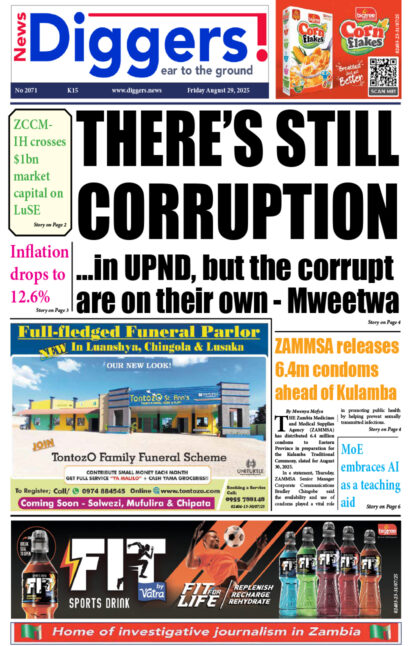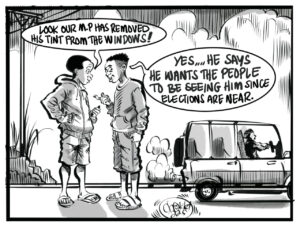Chapter One Foundation Limited has asked the Constitutional Court to dismiss the State’s application to have their petition, in which they are seeking an order that Minister of Justice Given Lubinda withdraws Bill 10 from the National Assembly, thrown out.
In this matter, Chapter One Foundation Limited, which is being represented by former LAZ president Linda Kasonde, has petitioned the Constitutional Court for an order that Lubinda withdraws Bill 10 from the National Assembly, saying the process of its enactment and the proposals do not comply with national values, principals and provisions of the Constitution.
The non-governmental organisation (NGO) which has cited the Attorney General as respondent in the matter, further wants the court to make a declaration that the President, Lubinda and the Attorney General, acted illegally by initiating legislation that did not comply with the national values and principles as provided in the Constitution.
Chapter One Foundation also wants, among other claims, for the court to make a declaratory order that government cannot fundamentally alter the nature of the Constitution contrary to the will expressed by the people without duly consulting them.
But the State through Attorney General Likando Kalaluka filed a notice of motion to raise three preliminary points of law to dismiss the petition pursuant to order 14A Rule 1 and Order 33 Rule 7 of the Rules of the Supreme Court White Book.
But in skeleton arguments in opposition to the State’s notice of motion, Chapter One Foundation chairperson Fr Cleophas Lungu stated that the application to have their petition dismissed on preliminary points of law, presuant to order 14A order and Order 33 Rule 7 of the Rules of the Supreme Court White Book (1999), was wrongly before court and should therefore be dismissed.
He submitted that the questions of law submitted by the Attorney General failed to meet the criteria set out in Order 14A of the rules of the Supreme Court White Book (1999) edition.
Fr Lungu further stated that the submissions by the Attorney General in support of the notice of motion failed to show how the said questions of law meet the criteria required by Order 14A of the White Book in order for the court to consider.
“A reading of the provisions relied upon for the application by the respondents shows several criteria that ought to be met for a court to consider any question of the law of fact arising in a matter,” he stated.
Fr Lungu submitted that the question put forward by the Attorney General on ‘whether an action or decision taken pursuant to constitutional provisions can be said to contravene the constitution’, does not reveal a point of law for the court to consider exercising its discretionary authority in the manner provided in Order 14A.
He stated that the petition does not allege that there has been an amendment to the constitution but alleges that in carrying out the decisions, actions and measures necessary to amend the Constitution, the government has contravened the principles that they are mandated to apply in the execution of their functions and responsibilities.
Fr Lungu submitted that the President had the constitutional authority to initiate bills but not bills that do not uphold and reflect the values and principles in the Constitution.
He added that cabinet had authority to approve bills for presentation to the National Assembly, whereas the Attorney General had the obligation of signing bills, but not bills that do not uphold or reflect the values and principles in the Constitution.
“We wish to further submit that as the petition presents important questions on the exercise of constitutional authority and the execution of constitutional duties, it is not one that warrants the use of the courts discretionary authority as the petition is not hopeless, vexatious or frivolous,” stated Fr Lungu.
He submitted that the State’s application be dismissed with costs.
























